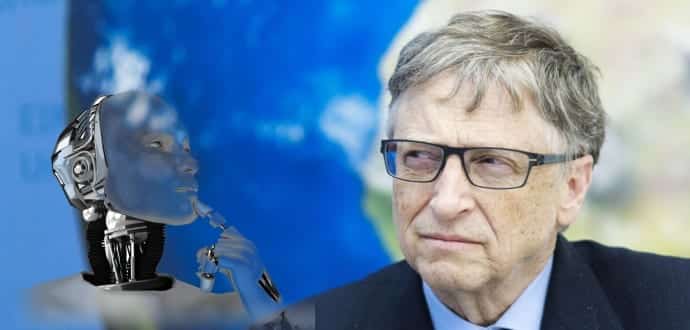Bill Gates says that we can’t just give up the taxes that humans pay
If a robot is going to do a human’s job, it should also pay a person’s income taxes, according to the Microsoft founder, Bill Gates. In other words, since fewer people will be working after robots take over human jobs, it would mean that fewer people would be paying taxes.
“Right now, the human worker who does, say, $50,000 worth of work in a factory, that income is taxed and you get income tax, Social Security tax, all those things,” said Gates in an interview with Quartz’s editor-in-chief Kevin Delaney. “If a robot comes in to do the same thing, you’d think that we’d tax the robot at a similar level.”
Gates is actually hopeful about the prospect of a workforce made up significantly of robots and, he emphasizes the jobs humans will still and always be needed to do.
“What the world wants is to take this opportunity to make all the goods and services we have today and free up labor – let us do a better job of reaching out to the elderly, having smaller class side, helping kids with special needs,” says Gates.
“All of those are things where human empathy and understanding are still very unique, and we still deal with an immense shortage of people to help out there.”
“If a robot comes in to do the same thing, you’d think we’d tax the robot at a similar level.”
Gates says that once automation takes over activities that humans used to do, that should free up time for people to take up emotional and emphatic roles like teaching and caring for the sick and elderly, having smaller class sizes, and helping kids with special needs.
But a “robot tax” is necessary to ensure that these services exist. Also, tax revenue is very important to making training and new, irreplaceable jobs available to human workers.
“But you can’t just give up that income tax, because that’s part of how you’ve been funding that level of human workers,” Gates said. “Some of it can come on the profits that are generated by the labor-saving efficiency there. Some of it can come directly from some type of robot tax. I don’t think the robot companies are going to be outraged that there’s going to be a tax.”
Eighty million U.S. jobs and 15 million U.K. jobs are at risk from automation, says Bank of England boss Mark Carney, as roles could be taken over by machines with some professions just disappearing.
Watch the full interview from Quartz here:

